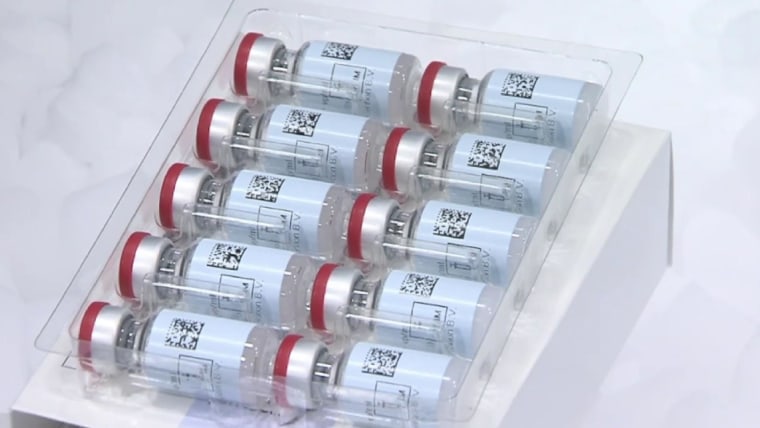[ad_1]
The Food and Drug Administration granted emergency use authorization to Johnson & Johnson’s Covid-19 vaccine on Saturday, adding a third vaccine to the U.S. arsenal to fight the pandemic.
“Today’s emergency use authorization of the Janssen Covid-19 vaccine is another milestone as we work to end the Covid-19 pandemic,” said Dr. Peter Marks, director of the FDA Center for Biologics Evaluation and Research. “Guided by our careful review of the science and data, we have determined that the vaccine’s known potential benefits clearly outweigh its known potential risks.”
Full coverage of the coronavirus outbreak
The decision comes one day after an advisory committee to the FDA voted unanimously in favor of recommending the vaccine.
“We’re in a race between the virus mutating, with new variants coming out that can cause further disease, and stopping it,” said Dr. Jay Portnoy, a professor of pediatrics at the University of Missouri-Kansas City School of Medicine and a member of the advisory committee.
“The fewer people who are infected with the virus, the less opportunity it has to emerge as a more virulent strain.”
President Joe Biden released a statement after the announcement, calling the decision “exciting news for all Americans, and an encouraging development in our efforts to bring an end to the crisis.”
Doses are expected to begin shipping Monday, starting with about 4 million of them. Johnson & Johnson, which developed the vaccine in partnership with Janssen Pharmaceuticals, said that 20 million doses will be available by the end of March.
That will be enough to fully vaccinate 20 million people, because the Johnson & Johnson vaccine is given as a single dose. The other available vaccines, from Pfizer-BioNTech and Moderna, are given as two doses each, three to four weeks apart.
Though the Johnson & Johnson vaccine will be given as a single dose, the company is studying the impact of a second dose.
On Friday, members of the FDA’s panel of independent experts wondered what would happen if a two-dose formulation is ultimately authorized.
Dr. Paul Offit, a vaccine expert at the Children’s Hospital of Philadelphia, suggested it might be difficult to communicate the change to those who only received the one dose.
“You can see where that would be confusing to people where they may be thinking, ‘Maybe I didn’t get what I need?'”
An FDA analysis, posted online Wednesday, found the vaccine to be safe and effective. The single shot was shown to be 86 percent effective at preventing severe disease. In the U.S., the shot was found to be 72 percent effective at preventing moderate to severe disease. In South Africa, where a worrisome variant is circulating, that number was lower: 64 percent.
“People should take the vaccine they are able to access,” said Acting FDA Commissioner Janet Woodcock. “All these vaccines meet our standards for effectiveness.”
Download the NBC News app for full coverage of the coronavirus outbreak
Dr. Richard Besser, president and CEO of the Robert Wood Johnson Foundation and a former acting director of the Centers for Disease Control and Prevention, applauded the FDA’s decision.
“With three Covid-19 vaccines now available, the number of cases and deaths around the country continuing to fall, and Congress taking steps toward approving additional critically needed economic relief, I have never been more encouraged that we might be finally turning the corner on this pandemic,” he said in a statement.
Still, Besser said that Americans must remain vigilant, adhering to mask-wearing, distancing and limiting travel. “Whether and when the pandemic ends is — as it has always been — largely up to us.”
In December, the FDA authorized Covid-19 vaccines from Pfizer-BioNTech and Moderna. Two more vaccines, from AstraZeneca and Novavax, are completing Phase 3 clinical trials, and are expected to apply for FDA authorization in the spring.
Follow NBC HEALTH on Twitter & Facebook.
[ad_2]
Source link


